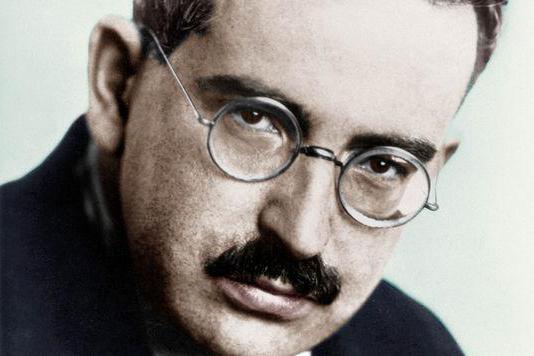The name of the German philosopher, Marxist, aesthetics, critic and translator Walter Benjamin is increasingly recalled by current cultural scientists. To quote him now has become fashionable. As well as many of his contemporaries, such as Ortega y Gasset or Bertolt Brecht. All of them were united by a tragic sense of peace, concern about the fate of art and pessimism towards humanity. Apparently, all this turned out to be very consonant with our era, calling itself “postmodernism”. This article is an attempt to shed even a faint light on what kind of person Walter Benjamin was.
A brief history of life
The future philosopher was born in 1892 into a prosperous Jewish family in Berlin. On the maternal side, Walter Benjamin was related to Heinrich Heine. My father was engaged in the sale of antiques. Subsequently, the bankruptcy of the family business prompted the philosopher to go to Moscow. It was in the years 1926-1927. He worked a lot in the archives, met with Vladimir Mayakovsky. From this trip, he remained mostly negative memories, which he recorded in his "Moscow Diary". In 1933, a Jew and anti-fascist Walter Benjamin was forced to emigrate from Germany. He left for France, from where in 1940 he tried to get to the United States through Spain.
Tragic end
The Spaniards refused the writer to cross the border, as he did not have a visa. By law, he was supposed to be sent back to France, where the Nazis already ruled. He was allowed to spend the night at a local hotel, where he committed suicide on the night of September 26-27. His death helped the rest of the refugee group cross the border - the Spaniards, impressed by the tragedy, let everyone pass unconditionally. This group included Hannah Arendt, who was a big fan of Benjamin's ideas. She brought with her one of the drafts of his article “On the Concept of History” and published it in the USA under the heading “Abstracts on the Philosophy of History”.
Philosophical views
Walter Benjamin, like many of his contemporaries, was strongly influenced by Marxism. He very peculiarly combined it with Jewish mysticism and psychoanalysis. Being a translator, he was a distributor of French culture. Thanks to him, the novels of Marcel Proust and Charles Baudelaire came out in Germany. Walter Benjamin anticipated the historical approach of the second half of the 20th century. He outlined his views on the philosophy of history in his posthumous work, which Arendt transported to the United States. But the most famous work that Walter Benjamin wrote? - "A work of art in the era of technical reproducibility." In it, he formulated a theory that has become very popular in our time: about the aura that the object of art is losing, which has undergone endless replication.
The fate of the teachings
Only after his death, in the second half of the 20th century, the ideas of Walter Benjamin began to gain fame. A great role was played by his friends and colleagues - Theodor Adorno and Gershom Scholem. Adorno created a whole archive of the philosopher, collecting all his notes, notes, passages and drafts in one place. He did not divide Benjamin's works into significant and passing ones. This archive formed the basis of many years of work Adorno, dedicated to the legacy of Walter Benjamin. He did much to popularize the writer's works, but focused solely on his philosophical works. For a long time no one suspected that Benjamin had research on the history of photography, for example.
Walter Benjamin: the best-known quotes
The language of Walter Benjamin is very specific. The writer was distinguished by the ability to see the big in the small, to draw deep conclusions from everyday things. Therefore, the unexpected turns of his speech are often surprising, but cannot but delight. For example, in the Berlin Chronicles, he derives his future rebellion and a tendency to sabotage from the stubborn unwillingness to go next to someone that was characteristic of him in childhood.
Poetization of the everyday is the hallmark of Benjamin's style. In his one-way street, he connects the birth of a detective with the era of the bourgeoisie. All this magnificent, dark and slightly dusty interior, which the wealthy merchants surrounded themselves with, is like a creeper is better suited for deceased bodies. “Aunt could only be killed on this sofa,” the philosopher writes.

Perhaps Walter Benjamin is becoming increasingly popular, because the current generation, frantically turning around himself, does not find any points of support and is forced to look for them in the past. He is now perceived as an example of ideological resistance to established traditions, the rebellious spirit of disbelief in the obvious and the denial of worship of science as the only answer to all questions. His works are written in exquisite, correct German language and are stylistically perfect. They should definitely be read to everyone who is interested in issues related to the historical perspective.